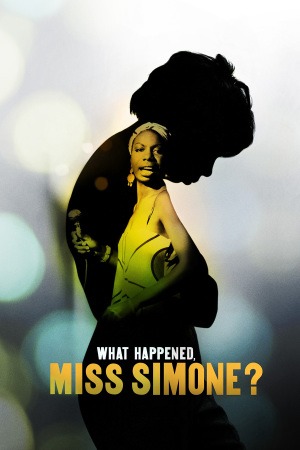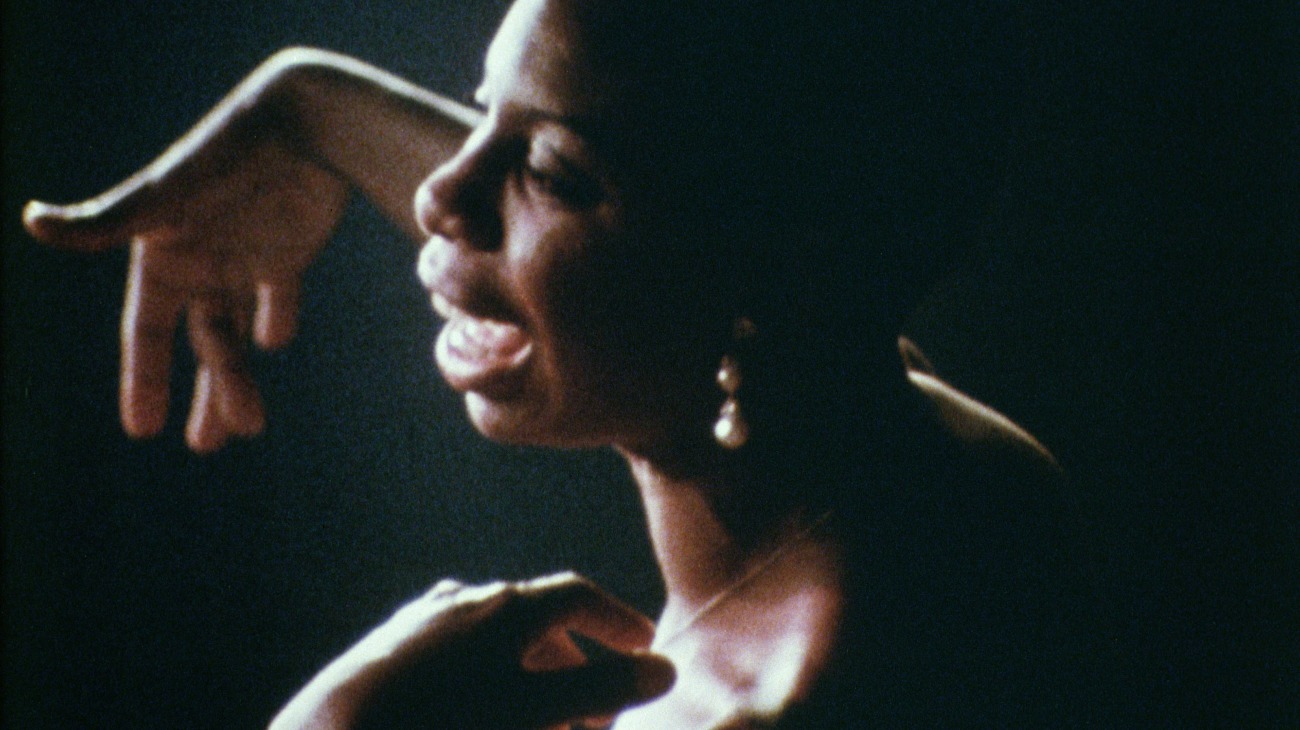
A review in brief
There is a tradition in documentary filmmaking, I do not know what we should call it: the work of archivist-interviewers, perhaps. Even if you have no idea what I'm talking about, you've seen it: there are talking heads who explain stuff, and there is vintage footage of the stuff they're explaining, and sometimes they're talking over it, but sometimes not. It is the format of all those PBS American Masters episodes, and of basically every historically-oriented TV show ever; it is essentially boring and mostly inartistic, but it's still very good at doing one thing: explaining a topic and then demonstrating it. It is the way we learn things from documentaries. And What Happened, Miss Simone? just so happens to be about as close as I can imagine to the perfect version of that form; a biographical sketch so scintillating and authoritative that I barely registered how stylistically generic it was.
The film is Liz Garbus's supremely confident portrait of Nina Simone, a woman who mixed groundbreaking musical genius with fiery radical politics, and is generally one of the most fascinating, difficult icons of the American Civil Rights Movement that you could hope to find. Garbus presents her story in exactly the way you'd expect: footage progressing in chronological fashion from Simone's earliest days as a burgeoning star, to her roaring invocations of Black nationalism in the '60s and '70s, to her years of restful decline in France. The footage is immaculately well-chosen, presenting a full range of Simone's career and character in her own voice; purely as a collection of archival materials, this is everything that 2015's other major musician bio-doc, Amy, was too narrowly-focused to be.
But What Happened, Miss Simone? isn't just about old footage, and it's possibly in the newer interview footage that the film shifts from being a deeply satisfying record of Simone's career to a borderline-essential reckoning with her artistic legacy. It becomes very clear, the more interviewees we meet, what a complex, grandiose figure Simone was to those who knew her, beyond any one person's ability to grapple with all the facets of her personality. The most poignant interview subject is undoubtedly her daughter, Lisa Simone Kelly, who executive-produced the film and uses it neither to lionise her mother nor condemn her in so much tawdry gossip, but instead struggles towards comprehend how to reconcile Nina's musical gift, her passionate and possibly dangerously overwrought politics, and the at times ice-cold cruelty she levied upon her daughter, the one person upon whom she could transfer all the abuse she received herself.
Gossiping about an abusive mom is no more the film's goal than canonising Simone as a plaster saint; this is as earnest an attempt as can be attempted in 100 minutes to fully grasp the twists and turns inside the mind of a mercurial genius, for good and great and ill. If it never quite finds space to fully demonstrate Simone's musical career beyond a tour of her greatest hits, and rushes through her retirement years with unenlightening speed, the very least that What Happened, Miss Simone? does is to make an ironclad case that as a human being, Simone was as fascinatingly jam-packed with ideas and furies as anyone in the 20th Century, and is well worth getting to know better.
The film is Liz Garbus's supremely confident portrait of Nina Simone, a woman who mixed groundbreaking musical genius with fiery radical politics, and is generally one of the most fascinating, difficult icons of the American Civil Rights Movement that you could hope to find. Garbus presents her story in exactly the way you'd expect: footage progressing in chronological fashion from Simone's earliest days as a burgeoning star, to her roaring invocations of Black nationalism in the '60s and '70s, to her years of restful decline in France. The footage is immaculately well-chosen, presenting a full range of Simone's career and character in her own voice; purely as a collection of archival materials, this is everything that 2015's other major musician bio-doc, Amy, was too narrowly-focused to be.
But What Happened, Miss Simone? isn't just about old footage, and it's possibly in the newer interview footage that the film shifts from being a deeply satisfying record of Simone's career to a borderline-essential reckoning with her artistic legacy. It becomes very clear, the more interviewees we meet, what a complex, grandiose figure Simone was to those who knew her, beyond any one person's ability to grapple with all the facets of her personality. The most poignant interview subject is undoubtedly her daughter, Lisa Simone Kelly, who executive-produced the film and uses it neither to lionise her mother nor condemn her in so much tawdry gossip, but instead struggles towards comprehend how to reconcile Nina's musical gift, her passionate and possibly dangerously overwrought politics, and the at times ice-cold cruelty she levied upon her daughter, the one person upon whom she could transfer all the abuse she received herself.
Gossiping about an abusive mom is no more the film's goal than canonising Simone as a plaster saint; this is as earnest an attempt as can be attempted in 100 minutes to fully grasp the twists and turns inside the mind of a mercurial genius, for good and great and ill. If it never quite finds space to fully demonstrate Simone's musical career beyond a tour of her greatest hits, and rushes through her retirement years with unenlightening speed, the very least that What Happened, Miss Simone? does is to make an ironclad case that as a human being, Simone was as fascinatingly jam-packed with ideas and furies as anyone in the 20th Century, and is well worth getting to know better.






